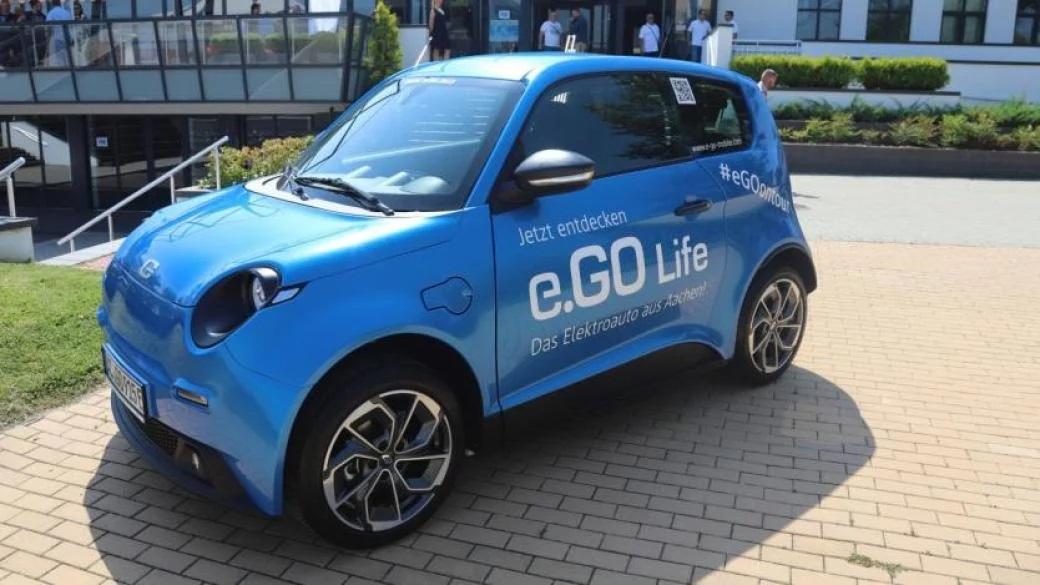Next.e.GO goes bankrupt
The company entered Bulgaria with loud promises, but soon the news surrounding it died down amid financial challenges

© ECONOMIC.BG / Krasimir Svrakov
German electric car manufacturer Next.e.GO Mobile SE (e.GO), which planned to build a factory in the Bulgarian town of Lovech, has filed for insolvency. This comes a year and a half after the company went public on the New York Stock Exchange and amid the subsequent influx of cheap electric cars from China, the same type that the Aachen-based e.GO was planning to produce.
The decision to file for insolvency proceedings comes against the background of recent adverse developments and challenges in the electric vehicle sector, the volatility of the capital markets, exacerbated by the recent situation surrounding other participants in [that] sector," said a press release from e.GO.
Bulgarians first heard of e.GO in the summer of 2021, when ex-PM Kiril Petkov (then caretaker minister of economy) surprisingly announced that the German startup would invest 140 million euros in creating a factory for electric cars in Lovech. It should have already been working by now, and according to the plan, it was supposed to give work to about 1,000 people producing 30,000 cars per year.
The Bulgarian state was harnessed to act quickly in support of the "strategic" player. However, the company put the project on hold and in the meantime focused on building a factory in neighboring North Macedonia.
From our side, we did everything that needed to be done," Arch. Lyubomir Stanislavov, executive director of Automotive Cluster Bulgaria and project manager for the e.Go factory in Bulgaria, told Economic.bg.
Pressured by its ambitious plans, Next.e.GO Mobile SE became listed on the New York Stock Exchange through a SPAC merger with Athena Consumer Acquisition Corp. – a "blank check" type company. The raised capital was supposed to serve to expand the production of the German startup, including Bulgaria.
The company hesitated whether to try to go public through an IPO, but in the end, settled on the SPAC deal option - a long-standing method that gained vast popularity around 2020. However, the craze for these types of companies had tamed down by 2022 and when e.GO decided to attack Nasdaq through a "blank check" type corporation, the reverse trend was already underway with many SPACs failing. All this also happened against the background of tremors in the stock market in general.
At the same time, the European market was flooded with cheap Chinese cars. Ruling the scene today is BYD, the company that at the end of last year even overtook Tesla as the world's largest seller of electric vehicles, a fact that sealed the Asian automaker's impressive rise.
Next.e.GO admits that "the equity-based financial instruments that were secured by the company could not be performed at the expected level and at the expected pace."
Prevailing market conditions, together with uncertainty in the electric vehicle sector, further hindered the company's ability to secure alternative financing as required under the local regulatory framework.”
Founded in 2015, the German startup initially ran into serious financial difficulties but was then rescued by Dutch private equity firm ND Industrial Investments, part of the ND Group.
Translated by Tzvetozar Vincent Iolov

 Mirela Vavova
Mirela Vavova 


